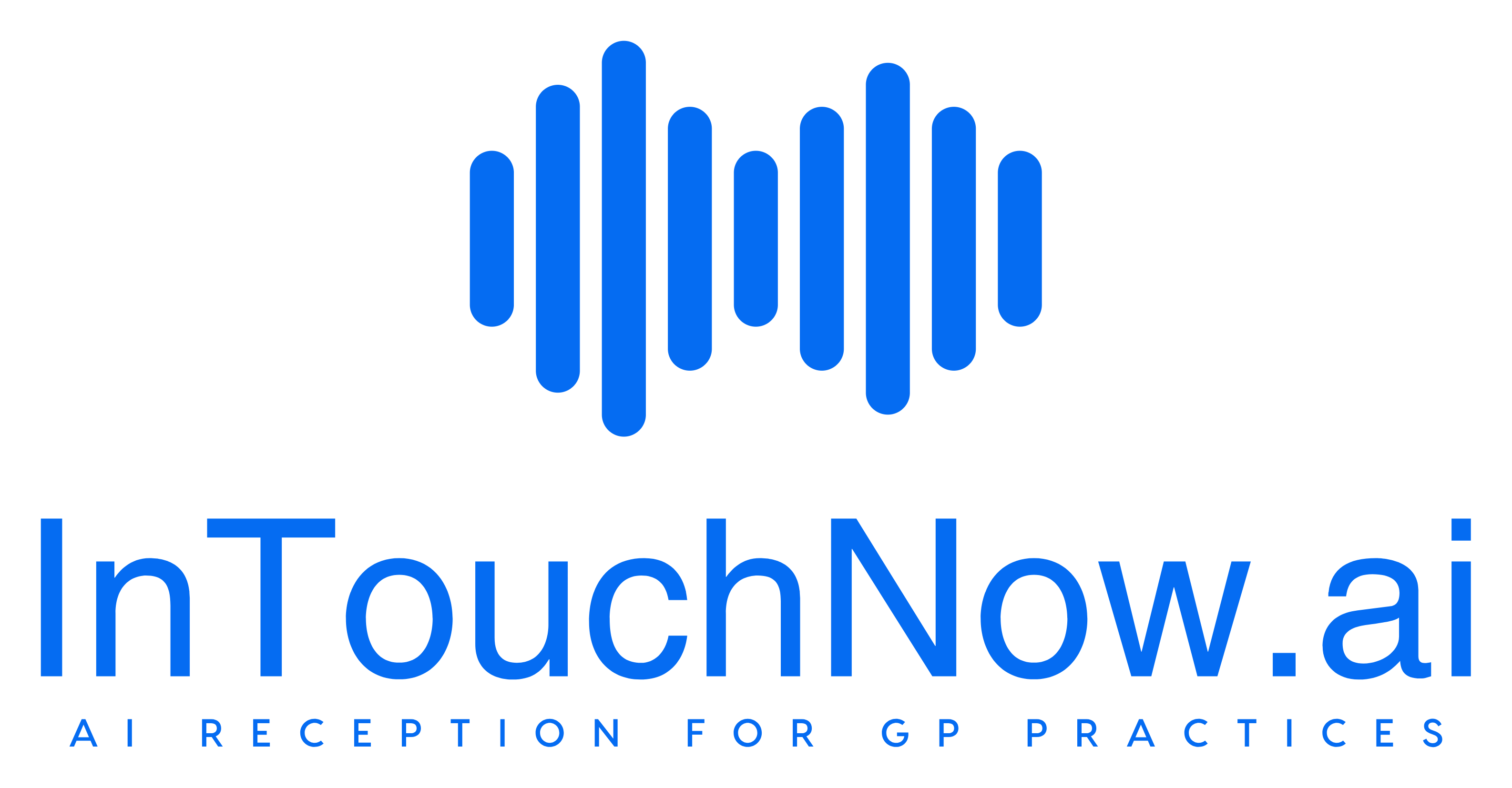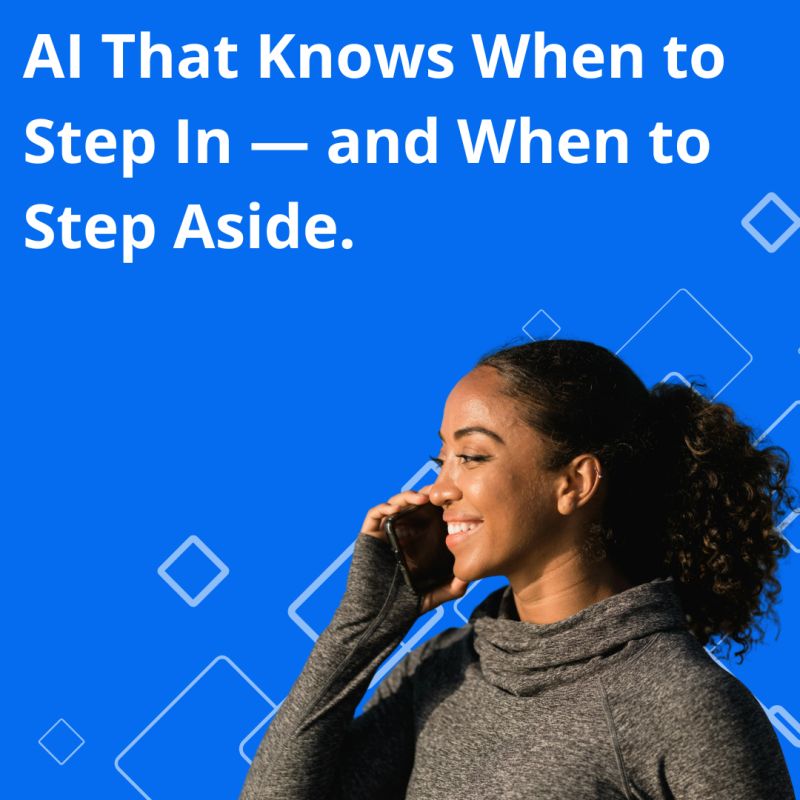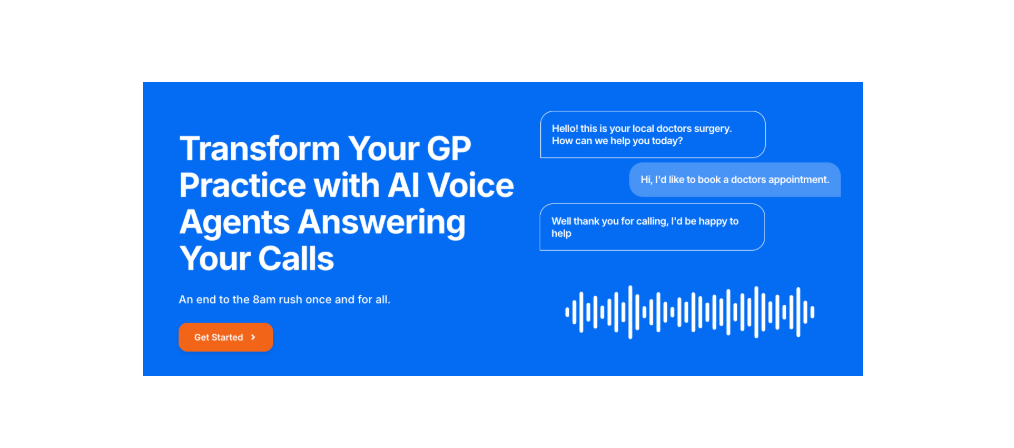The main AI applications for healthcare patient enquiries include automated appointment booking, symptom triage, and 24/7 patient support chatbots.
Research shows that 67% of healthcare practices are already exploring AI solutions to manage increasing patient demands. AI-powered systems can handle routine enquiries whilst ensuring clinical staff focus on complex patient care.
What You'll Achieve:
- Reduce staff workload by automating appointment bookings, prescription requests, and routine enquiries
- Improve patient satisfaction with instant responses available 24/7 outside surgery hours
- Enhance accuracy in appointment scheduling and patient information management
For more information, visit InTouchNow.ai

What Types of Patient Enquiries Can AI Handle Effectively?
AI systems work brilliantly for handling everyday admin tasks like booking appointments, prescription requests, and general practice information. Smart chatbots can understand what patients are asking for and give them the right answers or pass them on to staff when needed.
Appointment booking works best with AI, managing up to 80% of booking requests without any human help. AI can check when doctors are free, confirm patient details, and send appointment reminders automatically.
Prescription queries including repeat orders, collection times, and refill requests connect easily with your practice computer systems. Automated processes make sure requests get to the right clinical staff for approval.

How Does AI Symptom Triage Work for Medical Practices?
AI triage systems use symptom checkers and simple decision trees to assess patient queries and put urgent cases first. Smart computer programmes analyse what patients describe and send queries to the right care level based on medical guidelines.
Symptom checking tools ask targeted questions to work out how urgent things are. Serious warning signs get passed straight to clinical staff, whilst routine queries get self-care advice or standard appointment booking.
Working with NHS 111 guidelines means AI triage follows established healthcare pathways. This consistent approach keeps patients safe whilst reducing unnecessary appointments for minor problems.
Can AI Technology Replace Human Reception Staff Completely?
No, AI cannot completely replace human reception staff but works brilliantly as a support tool. Complex queries, emotional support, and clinical decisions still need human expertise and understanding.
Mixed approaches work best, with AI handling routine tasks whilst human staff manage difficult situations. This team approach improves efficiency without compromising patient care quality.
Backup systems ensure patients can always access human support when needed. Patient choice remains important, with many preferring human interaction for sensitive health concerns.

What Are the Main Benefits of AI for Healthcare Enquiry Management?
Big time savings represent the main benefit, with practices reporting 40-60% reduction in routine admin tasks. Staff productivity improves as reception teams focus on complex patient needs rather than repetitive queries.
24/7 availability extends patient support beyond surgery hours without extra staffing costs. After-hours queries get immediate acknowledgment and proper triage, improving patient satisfaction.
Consistent responses ensure all patients receive accurate information about services, opening hours, and procedures. Standard guidelines reduce errors and improve practice efficiency.
How Much Does AI Implementation Cost for Small Medical Practices?
Monthly costs typically range from £200-£800 depending on features and patient numbers. Setup costs may include connection fees and staff training, but return on investment typically happens within 6-12 months through reduced staffing pressures.
Flexible pricing makes AI accessible to single-GP practices through to large medical centres. Cloud-based systems remove the need for expensive computer equipment.
Cost savings from reduced locum costs and improved staff efficiency often offset AI implementation expenses. Small practices particularly benefit from accessing professional capabilities without hiring extra reception staff.
What Patient Data Protection Issues Should Healthcare Practices Consider with AI?
GDPR compliance remains absolutely essential when using AI systems in healthcare settings. UK-based AI providers must show NHS Digital compliance and data processing agreements that meet healthcare rules.
Patient consent requirements include telling patients about AI usage and providing opt-out options. Clear privacy policies must explain how AI systems process and store patient information.
Data security measures including encryption, access controls, and audit trails ensure patient information stays protected. Regular security checks and penetration testing maintain ongoing compliance with healthcare data protection requirements.
The use of AI in healthcare enquiry management continues advancing with voice recognition improvements and better symptom checking capabilities. Practices adopting AI solutions now position themselves well for future healthcare delivery models whilst maintaining the personal touch that defines quality patient care.







